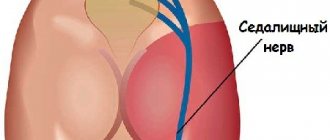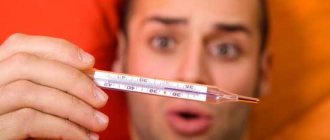According to statistics, about 60% of people complain of a burning sensation in the stomach after eating. This rarely happens once, most often this symptom occurs with pathologies of the stomach. Stomach burning is not synonymous with heartburn. Heartburn is treated a little differently, manifests itself differently and arises from other causes.
Heartburn is a burning sensation behind the breastbone due to the backflow of gastric contents as a result of disruption of the dividing sphincter between the stomach and esophagus. A burning sensation behind the sternum is a burning sensation in the esophagus with reflux esophagitis. This causes increased salivation and a sour taste in the mouth. Heartburn can be associated with the nature of food, tight clothing, bending, etc. Often, burning of the esophagus after eating and in the stomach are often combined. Their etiology is different, but the treatment is almost identical.
Causes of burning sensation in the stomach
The stomach is lined with mucous membrane, the cells of which produce mucin (mucus), which is protective. Mucus covers the walls of the stomach to a thickness of 0.5 mm. It not only prevents pathogens from entering, but also protects the stomach from aggressive hydrochloric acid and pepsin, which the stomach itself produces. Otherwise, the stomach wall would begin to digest itself. Thus, a burning sensation in the stomach is a consequence of a violation of the acid-base balance (acid-base balance) in the acidic direction.
To digest food, you need, first of all, hydrochloric acid and the enzyme pepsin. Their mixture is very aggressive, so much so that it is capable of breaking down any organic substances. Normally, hydrochloric acid is produced exactly as much as is needed to digest the food bolus.
The walls of the stomach could also be burned by this mixture, if not for the protection of mucin in the mucous membrane. The esophagus is also lined with mucous membrane, but it has no protective properties.
Why can a burning sensation in the stomach after eating bother a person? If the gastric mucosa is damaged by any aggressive irritating factor, its protective functions are lost.
In such cases, aggressive damaging factors are able to penetrate deep into the wall of the stomach with subsequent damage. This phenomenon easily causes an uncomfortable burning sensation in the stomach immediately after eating.
Causes of burning in the intestines after eating
A burning sensation in the intestines is a harbinger of many health problems. This symptom cannot be ignored and it is imperative to listen to the type of pain, since this is what will allow an accurate diagnosis.
A burning sensation may occur in the lower abdomen or in the stomach area. This symptom is often noted by older people, but recently young people are increasingly encountering such troubles. The reason for this is an unhealthy lifestyle, and primarily poor quality nutrition.
Most often, it is problems in the functioning of the stomach and intestines that lead to a person feeling a burning sensation. These organs can be susceptible to various pathologies, so there is no need to ignore the problem. A burning sensation in the abdomen can be the first sign of illness. The sooner it is diagnosed, the sooner the patient will receive the correct treatment. This guarantees a quick recovery and reduces the risk of complications.
Additional symptoms
A burning sensation in the abdomen is a sign of many serious (and not so serious) problems. To determine the degree of risk, you need to pay attention to additional symptoms.
Often, a burning sensation in the stomach or intestines is accompanied by constant belching, an unpleasant taste in the mouth, incorrect determination of the taste of foods, severe pain radiating to various parts of the body, vomiting and nausea. These are the most well-known symptoms that accompany the burning sensation. They most likely signal an acute stage of gastritis, pancreatitis or another disease of the gastrointestinal tract.
If there is severe discomfort in the abdominal cavity, the pain becomes simply unbearable and plus a high temperature rises, the condition indicates that you need to consult a doctor immediately. Such signals indicate the development of a strong inflammatory process, and this is already very dangerous and can threaten the patient’s life. For example, this is how a complication of appendicitis can manifest itself, that is, peritonitis can develop. This problem needs to be resolved quickly.
What does a burning sensation indicate?
There are many different diseases that can manifest as a burning sensation in the abdominal area. But you need to take into account that this symptom cannot be the only one. It is always accompanied by others that are characteristic of a particular illness.
One of the most dangerous diseases, which can initially manifest as a burning sensation in the abdominal area, is appendicitis. The source of discomfort can be located both in the abdominal cavity and in the intestines. Patients often complain that the pain radiates to the right side. Appendicitis is dangerous because it can only be treated surgically and requires urgent medical attention. If time is missed, serious complications may develop.
Clinically, the disease represents inflammation of the intestinal appendix. If the disease progresses to a purulent stage, infection may occur. Considering that appendicitis is associated with an inflammatory process, patients often experience fever, general weakness, vomiting and nausea. In some cases, diarrhea may occur.
A common cause of burning in the abdominal area is irritable bowel syndrome. This disease is quite common due to the factors that influence its occurrence. Typically, the syndrome occurs during psychological disorders, nervous tension and severe stress, and this happens to most of humanity in our time. Some people live in constant stress, which exposes their body to serious stress.
The main cause of irritable bowel syndrome is that during nervous tension, a large amount of bile is released from the gallbladder. The stomach cannot cope with it and cannot immediately process and remove so much liquid. It begins to corrode the walls of the digestive tract, which causes a burning sensation, and then diarrhea. The syndrome can and should be treated. If you do not pay attention to it, an inflammatory process may begin in the abdominal organs, which can spread to neighboring organs.
People with Crohn's disease constantly experience a burning sensation in the abdomen. It is chronic, but a person can maintain the condition of his body at the proper level so as not to encounter an exacerbation of the disease.
Pathology is an inflammatory process in the intestines. In the acute stage, it manifests itself in the form of a burning sensation caused by inflammation in the organ, as well as constant bloating and diarrhea. The main cause of Crohn's disease has not been established, but doctors believe that most often it becomes a hereditary phenomenon.
With dysbacteriosis, the occurrence of a burning sensation cannot be ruled out. Changes in the microflora of the intestines and stomach lead to irritation of the walls of the organ, which causes inflammation and discomfort.
In addition to the burning sensation, characteristic symptoms of dysbiosis are:
- general weakness;
- diarrhea;
- severe pain in the lower abdomen;
- flatulence;
- headache.
The effect of an intestinal infection, which can be caused by a virus, bacteria or fungi, also often manifests itself in the form of a burning sensation. If the products were of poor quality, this symptom occurs first after eating. It may already be followed by diarrhea, nausea and lack of appetite.
An unpleasant sensation can sometimes indicate the presence of adhesions in the abdominal cavity. They appear for a reason, but most often become a consequence of the operation performed. This pathology may be accompanied by abdominal pain, constipation and a general deterioration in well-being.
The most dangerous disease, which can also cause a burning sensation in the stomach, is a cancerous tumor. It is impossible to determine that we are talking about such a terrible diagnosis without special tests, so patients need to consult a doctor in a timely manner. Even a malignant tumor can be dealt with if you receive proper and timely treatment.
In rare cases, a burning sensation in the abdomen becomes a sign of pregnancy. Active changes in hormonal levels that occur during this crucial period can affect the condition of the entire body, including the gastrointestinal tract. Sometimes, from the very first weeks of bearing a baby, the expectant mother begins to experience digestive problems. For some women, a burning sensation in the abdomen, constipation and pain in the intestinal area become constant companions for the entire 9 months.
How to treat a burning sensation in the stomach
It all depends solely on what diagnosis is made by the doctor. If we are talking about pregnancy, then nothing can be done, you will have to endure it. The only thing an expectant mother can do is eat right and take pills to reduce acidity. However, before doing this, you should consult your doctor.
Save your body from parasites! Pain and bloating in the abdomen may be due to PARASITES. A parasitologist recommends consuming once a day... — Read more »
If you have been diagnosed with irritable bowel syndrome, you first need to treat the nerves, and then the problem will go away on its own. Appendicitis, peritonitis and malignant neoplasms should be treated only with radical methods. You can’t do this without the help of an experienced doctor. At the same time, you need to act quickly, since such diseases give a person very little time to solve the problem. Those who do not make it in time will face serious complications, including death.
If the disorder is associated with dysbacteriosis or food poisoning, you need to cleanse the body and normalize its microflora. In addition, you should adhere to the correct diet and stay on a gentle diet for some time. This will get rid of constipation, reduce bile secretion, eliminate bloating and many other unpleasant processes that can cause a burning sensation.
kiwka.ru
What food can be wrong for the stomach?
Harmful to the stomach:
- Foods high in fiber begin to act like sandpaper, injuring the mucous membrane. Among such products are the beloved bran bread, some vegetables (beets, raw cabbage) and fruits.
- A burning sensation in the stomach after eating can also be caused by pickles, smoked foods, marinades, spicy and fried foods. Many of these products contain carcinogens, acids, trans fats and other harmful substances.
- Fermented milk products with high acidity often cause a slight burning sensation in the stomach after eating.
- Sour fruits such as citrus fruits.
- Long-term abstinence from food has a detrimental effect on the mucous membrane.
- Foods that are undesirable for the stomach include any alcohol, fast food, soda, and chips.
- Also, the cause of a burning sensation in the stomach after eating can be due to nervous strain, frequent stress, taking drugs with an irritating effect - aspirin, NSAIDs, antibiotics before meals, iron, potassium supplements, etc.
- Provoking factors include excess weight and smoking. In obesity, the stomach is surrounded by fat, which slows down the process of breaking down food and its absorption. Therefore, burning in the stomach and esophagus after eating is a constant symptom in obese people.
However, that's not all. Pain is added to the above symptom. A burning sensation in the stomach after eating provokes many unpleasant symptoms. A vicious circle is formed, and the destruction of the mucous membrane continues to progress and deepen if measures are not taken. Besides everything, it is very harmful to overeat, especially at night.
Other causes of burning in the stomach after eating:
- bacterial infections (in 90% of cases it is the Helicobacter bacterium);
- hormonal imbalance;
- food that is too cold or hot;
- instant strong coffee;
- irregularity of food intake;
- diaphragmatic hernia;
- diseases of the stomach itself with high acidity - ulcers and gastritis;
- oncological formations;
- bad ecology;
- poor quality water;
- lifting weights;
- pregnancy (especially in the last trimester, when the enlarged uterus begins to put pressure on the stomach).
Burning in the intestines
Many have experienced unpleasant feelings in the lower abdomen.
They come in a wide variety of forms, including various types of burning, pain, etc. These symptoms can affect people, both young and elderly. As a rule, a burning sensation in the lower abdomen can signal problems in the intestines; this is most often caused by various pathologies. The main clinical picture accompanying a burning sensation in the abdominal cavity is:
- Constant belching
- Unhealthy taste in mouth
- Abdominal pain
- Temperature increase
- Sometimes nausea and vomiting
- Abdominal discomfort.
Causes
Appendicitis
Appendicitis can become a source of pain and burning sensations, both in the abdominal cavity and in the intestines. This is due to severe inflammation, and sometimes even purulent formation. In addition, there is weakness, fever, nausea and vomiting, diarrhea
This disease occurs quite often. Basically, very vulnerable and overly emotional people suffer from this disease, since disturbances in the intestines are observed due to some kind of psychological disorder. During nervous tension, large quantities of bile are thrown into the intestines and cause pain, burning, and loose stools. If the disease is not treated, it progresses even more, the burning and inflammatory process increases, the stool becomes bloody with an admixture of mucus. In addition, inflammation can spread from the abdominal cavity to nearby organs.
Crohn's disease
Crohn's disease is a chronic disease of the gastrointestinal tract. It affects almost the entire digestive system and is characterized by an acute inflammatory process. The intestinal mucosa and its thick layer are often affected. Symptoms of the disease can manifest themselves in different ways. However, the main ones are: abdominal pain, bloating, diarrhea, inflammation of the rectum and intestines, which is often accompanied by a burning sensation. The cause of the disease has not been fully established, however, many are inclined to believe that the disease is a hereditary pathology.
Intestinal dysbiosis
Dysbacteriosis can also cause a burning sensation in the intestines; it can be primary or secondary. Primary dysbiosis is characterized by changes in intestinal microflora and the development of inflammation, while secondary dysbiosis develops against the background of any disease. Characteristic symptoms of the disease are: diarrhea, flatulence, pain in the lower abdomen, burning sensation. Also, along with this, signs of polyhypovitaminosis are observed, such as headaches, weakness, indigestion, and irritability.
Intestinal infections
This type of disease is a group of diseases that affect the digestive tract. Infection mainly occurs due to contaminated food and water. The reasons for this are various bacteria, viruses, fungi. Very often, intestinal infections are severe and pose a serious health hazard. The diseases are characterized by acute pain in the abdomen, often a burning sensation in the intestines, diarrhea, nausea, vomiting, and lack of appetite.
Pregnancy
Often the cause of burning in the intestines and abdominal cavity is the period of pregnancy. First of all, these symptoms are caused by changes in a woman’s hormonal levels, which is the source of digestive problems. This, in turn, leads to pain in the intestines, often burning sensations, and constipation. Pain in the intestines in the lower abdomen during pregnancy is explained by the fact that the enlarged uterus begins to compress the abdominal organs.
Abdominal adhesions
Most often, this condition is observed after various types of operations. This condition is accompanied by poor health, weakness, abdominal pain, burning and discomfort in the intestines, constipation, etc.
Peritonitis
Inflammation of the abdominal cavity is called peritonitis; this is a serious pathology in which the patient is in serious condition. The disease develops as a result of abdominal injuries, infections, chemical exposure, etc. In addition to severe pain and fever, the disease is characterized by sensations similar to burning and cramping in the intestines. In this condition, the patient is urgently hospitalized and given immediate medical care.
Burning in the intestines is often caused by oncology. In this case, you need to immediately begin treatment with chemotherapy and radiation therapy, and the sooner it is started, the greater the chances of recovery.
Treatment
Treatment of irritable bowel syndrome, which causes burning, largely depends on the symptoms accompanying the disease.
- For irritable bowel syndrome, it is recommended to take sedatives at home, such as tincture of valerian, motherwort, peony, etc.
- You can use decoctions of injuries. Moreover, you need to follow a special diet
- If you have diarrhea and gas, you should exclude all foods that stimulate bowel function.
- For constipation, on the contrary, they use laxatives and adhere to a certain diet.
If you cannot cope with the disease on your own, then medical assistance is needed, including taking medications, some physical procedures, therapeutic massage, etc.
For Crohn's disease, treatment therapy is aimed at eliminating symptoms and alleviating the general condition of the patient. Most often prescribed:
- Anti-inflammatory drugs
- Corticosteroids
- Antibiotics
- In more severe situations, when complications occur, surgical intervention is resorted to. Surgical treatment makes it possible to get rid of the signs of the disease for a long time.
Therapy for dysbiosis, which is accompanied by a burning sensation in the intestines and abdominal cavity, must be comprehensive. The primary task is to restore the microflora of the organ and remove the cause of the disease. In this case, the main drugs are:
- Antibacterial drugs
- Probiotics
- Prebiotics
- Intestinal antiseptics
- Immuno- and biostimulants.
In addition, great importance is given to a special diet containing a large amount of vegetables and fruits, fermented milk products, etc.
When diagnosed with appendicitis or peritonitis, the only correct method of treatment is timely surgical intervention. Moreover, with severe burning and pain in the intestines, you can take antispasmodics. For chronic ailments, some physiotherapy, therapeutic exercises, etc. are indicated.
In this situation, there is nothing you can do to help yourself. It is necessary to consult a doctor as soon as possible, because if we are talking about purulent inflammation, it can be fatal.
Prevention
Preventive measures are quite simple, the main ones are:
- Maintaining a proper diet
- Never suppress the urge to stool, have bowel movements on time
- Avoiding frequent use of laxatives
- Maintaining personal hygiene rules
- Preventing constipation
- Rejection of bad habits
- Timely treatment of all diseases of the gastrointestinal system.
If you feel a burning sensation in the intestinal area, you should undergo a thorough examination in order to determine the cause of the above symptoms. It is important to remember that only a professional should treat any type of pain in the intestines, including burning. The only thing you can do on your own is to follow a strict diet. This will not cause harm, but will only help the disease not to spread further.
lekhar.ru
Symptomatic manifestations
A burning sensation in the stomach may be accompanied by morning sickness, pain that radiates to the back, and belching with burning of the throat mucosa. One of the most common symptoms is a metallic smell from the mouth. If your stomach burns after eating, the cause may be an ulcer or gastritis.
In these pathologies, the mucous membrane is already damaged. When an additional portion of acid or bile hits it, pain occurs, perceived as a burning sensation. This is especially true during hunger.
Causes
A burning sensation in the chest may occur for the following reasons:
- hormonal disbalance;
- disruption of the heart muscle;
- diseases of the gastrointestinal tract;
- diseases of the spine.
Experts include pathologies of the cardiovascular system that provoke a burning sensation in the chest:
- myocardial infarction;
- acute pericarditis;
- vegetative-vascular dystonia;
- angina pectoris.
Doctors call osteochondrosis a fairly common cause of pain and burning in the chest area. The essence of the disease lies in dystrophic disorders in articular cartilage, up to displacement of the intervertebral discs.
Osteochondrosis is one of the common causes of pain and burning in the chest area
Young specialists often confuse cardiac pathologies with intercostal neuralgia. They do have similar features, but there are also many differences. Intercostal neuralgia is characterized by pinching of a nerve root or its inflammation. This condition can be caused by osteochondrosis, a previous infectious disease, hypothermia or injury. Muscle spasm provokes pain that spreads across the sternum.
Heartburn
Heartburn is accompanied by a burning sensation in the gastric cavity almost always, regardless of etiology. Why does there be a burning sensation in the stomach after eating? For a more precise diagnosis, simply observe when exactly the burning sensation occurs. If it appears immediately after eating, most often it indicates gastritis. By the way, half of the world's population suffers from this disease.
With gastric ulcer (stomach ulcer), pain appears on an empty stomach or some time after eating. If a burning sensation occurs in the morning or evening, with pain in the epigastrium or on the right, most likely it is a duodenal ulcer.
Discomfort due to eating habits
A burning sensation in the stomach is very often associated with the way a person eats. Unpleasant sensations appear after eating certain foods and drinks. Among them:
- smoked products;
- fried foods (especially shish kebab);
- canned food and marinades with the addition of vinegar;
- fatty meat and fish;
- sour vegetables or fruits;
- carbonated sweet drinks.
Discomfort may appear after smoking a cigarette or drinking a portion of alcohol. For some people, even coffee and strong tea cause such sensations.
Carrying a child brings a woman not only joy, but also many new, not always pleasant, sensations. These include belching and a burning sensation in the stomach.
After fertilization of the egg, the female body begins to produce large quantities of progesterone. The main function of the hormone is to prevent contractions of the uterus to preserve the fetus. However, progesterone acts not only on the female organs, but also on the stomach and intestines.
The discomfort increases when the baby begins to grow at a rapid pace (in the second and third trimester). It compresses the gallbladder and intestines, which causes excess enzymes to enter the stomach, irritating the mucous membrane.
If a woman has no concomitant diseases, the discomfort disappears after the birth of the baby.
Diagnostic measures
For diagnosis it is necessary to undergo a number of studies:
- X-ray of the stomach is the first and safest method. It has no contraindications. The method is informative because it allows you to see an ulcer in the early stages, various deviations in the shape of the stomach, its external changes, as well as neoplasms.
- EGDS is the most modern, fastest and most popular diagnostic method. The mucous membrane is completely visible. Comprehensive information about the condition of the esophagus, stomach and duodenum is provided. The examination is carried out quite quickly, but has contraindications.
- A study of gastric juice is necessary because a burning sensation in the stomach after eating is always associated with an increase in acidity. The study can accurately determine the composition, acidity and pH of the juice and its deviations from the norm.
- Analysis for the presence of infection - we are talking about Helicobacter pylori. In 90% of cases it is the cause of stomach disease. Basically, a breath test is performed to check for the presence of Helicobacter pylori. A gastric biopsy may also be performed if cancer is suspected.
Burning sensation in the lower abdomen in women: causes and prevention
Unpleasant burning sensations in the lower abdominal region are accompanied by painful sensations that can occur in people regardless of gender and age as a result of diseases of various types.
Painful symptoms may vary in nature and severity. Thus, the pain can be strong, weak, aching, prolonged, dull, sharp, but in any case, the appearance of a pain syndrome indicates diseases and various pathologies.
A burning sensation in the lower abdomen may indicate diseases such as:
- appendicitis;
- Crohn's disease;
- diseases of the genitourinary system (cystitis, urethritis, pyelonephritis, prostatitis);
- ectopic pregnancy, endometriosis, ovarian cyst, rupture of ovarian follicle, neoplasms;
- congestive processes in the pelvic organs;
- shingles.
The main symptoms are nausea, belching, a sharp increase in temperature, dryness, heaviness and an unpleasant taste in the mouth.
A burning sensation in the lower right part is one of the most obvious symptoms that may indicate inflammation of the appendix of the cecum (appendicitis), therefore, if you suspect appendicitis, you should immediately seek medical help to prevent rupture of the appendix and the development of peritonitis.
Painful sensations in both the right and left sides can also be caused by herpetic ganglionitis (shingles). After a few days, small blisters appear at the site of the burning sensation and are located along the inflamed nerve. In case of improper or untimely treatment, the disease becomes chronic, and the feeling of discomfort may not go away for years.
During an ectopic pregnancy, the burning sensation is paroxysmal, usually in one of the iliac regions, while painful sensations are noted in the legs, lower back and are accompanied by painful, difficult urination and diarrhea.
IBS is irritable bowel syndrome, one of the most common gastrointestinal disorders.
The reasons for its development have not yet been fully studied, but researchers believe that it may be due to increased intestinal sensitivity.
Abdominal pain that is accompanied by bloating, increased gas production and changes in bowel habits (constipation or diarrhea) are all signs of IBS. Be sure to consult a doctor.
Inflammatory bowel disease (IBD) is a general term for conditions that involve chronic swelling of the digestive tract, namely Crohn's disease and ulcerative colitis.
Both of these diseases are accompanied by very similar symptoms, which makes diagnosis very difficult. In any case, if abdominal pain is accompanied by cramping and bleeding, you need to urgently consult a doctor.
Almost every one of us has experienced “harmless” heartburn once in our lives.
But if the burning sensation is stronger than usual, and is also accompanied by a bitter taste in the mouth, it may be acid reflux, a condition in which stomach acid enters the esophagus.
If this condition is not treated, it can lead to chronic problems with the digestive tract. So you should consult a doctor in time!
One of the most common intestinal diseases in older people is diverticulitis, an inflammation of the small formations lining the walls of the large intestine. If measures are not taken in time, this can lead to intestinal perforation and peritonitis. Symptoms of the disease are nausea, fever, pain in the left lower abdomen, bloating and constipation. Be sure to consult a doctor!
With appendicitis, the pain increases with movement and whenever the patient coughs, sneezes, or takes a deep breath. It is important to remember that this disease is not always accompanied by a high temperature - on the contrary, sometimes it is lowered. It is important to urgently call a doctor to prevent rupture of the appendix and the development of peritonitis.
By the way: 6 signs that you have gastritis and you don’t even know it
Etiology
A burning sensation in the lower abdomen that occurs in women signals the following pathologies:
- cystitis;
- ectopic pregnancy;
- ulcerative colitis;
- herpes zoster;
- the presence of stones in the bladder, kidneys;
- appendicitis.
Also, similar symptoms accompany pregnancy. On days 6-12 after conception, due to the implantation of the egg, discomfort may be felt in the lower abdomen, as well as burning and pain.
In some cases, intense pain in the right lower abdomen indicates cholecystitis and liver cirrhosis. Similar symptoms are observed in men with certain pathologies.
The burning sensation may be accompanied by an increase in body temperature. Inflammation of the lymph node, which is also characterized by discomfort in the lower abdomen, is accompanied by an increase in the size of the node, as well as swelling and pain.
If you detect a suspicious symptom, you should consult a doctor to avoid undesirable consequences. You should not treat yourself.
A burning sensation in the abdominal area can be caused by a wide variety of reasons, which are most often associated with disruption of the functioning of the gastrointestinal tract. In addition, external ailments can be sources:
- genitourinary system;
- skin;
- of cardio-vascular system;
- nervous system.
In addition, this manifestation is often expressed during pregnancy. Such a manifestation, depending on the etiological factor, can be localized both in the upper and lower parts of the anterior wall of the abdominal cavity.
Endometriosis is a possible cause of burning in the lower abdomen
Source: https://sakhbmc.ru/simptomy/gorit-kishechnik.html
Possible complications
Ignoring a burning sensation in the stomach for a long time leads to changes in the mucous membrane, and the inflammatory process begins. If even after this treatment there is no treatment, the inflammation of the mucous membrane becomes chronic, spreading not only in depth, but also in breadth, covering a large area.
In addition, inflammation can spread to neighboring organs, including the duodenum, gallbladder and pancreas. This is already advanced chronic gastritis. Erosion of the mucous membrane is replaced by a stomach ulcer.
Burning sensation in the intestines
When a person is bothered by frequent burning in the intestines and a painful sensation, then in this case it is worth listening to the body and trying to understand the cause of this condition, because it can be a symptom that a serious and dangerous disease is hidden in the human body. What needs to be done to get rid of this feeling, what diseases can cause discomfort and burning in the abdomen?
Causes of burning in the intestines
This discomfort in the abdominal area is caused by various reasons. The most common are diseases of the digestive system, nervous system disorders, and problems with the gallbladder and pancreas. In this case, the localization of pain is not established; pain appears on both the right and left sides of the abdomen. A burning sensation is the first sign of pregnancy, when hormonal changes occur in the body of the expectant mother. In any case, the cause of such an illness must be determined by a doctor, who will first refer the patient for a medical examination and only after making an accurate diagnosis will prescribe treatment.
Contributing diseases
Depending on where the unpleasant feeling and painful sensations are localized, you can first find out what kind of disease is causing the discomfort. If the burning sensation is concentrated in the upper abdomen, especially after eating, then we can say that the patient has developed a peptic ulcer, gastritis, or pancreatitis. However, diseases that are not related to the digestive organs can also develop. A burning sensation in the abdomen can be caused by myocardial infarction, acute pneumonia, aortic aneurysm, and others. Therefore, if the burning does not go away, but only intensifies, you need to urgently call an ambulance.
Inflammation of appendicitis leads to a burning sensation in the lower abdomen.
A burning sensation in the lower abdomen can be caused by inflammation of appendicitis, duodenal ulcer, Corn's disease, and diseases of the genitourinary system. If appendicitis is inflamed, then in addition to pain and burning in the lower abdomen, the patient’s temperature rises; when touching the right side of the abdomen, the person feels severe and sharp pain and bloating. In this case, it is necessary to urgently go to the hospital, since with appendicitis there is a risk of rapid development of a complication - peritonitis.
Burning sensation during pregnancy
Burning sensation during pregnancy occurs against the background of serious hormonal changes, when the organs of the expectant mother adapt to bearing the fetus. At the same time, the work of some organs, including the intestines, changes, the peristalsis of the organ decreases, and the woman begins to feel discomfort, burning, and sometimes pain.
At later stages, the growing fetus puts pressure on the intestines, its functioning slows down, which causes frequent constipation, dysbiosis, and discomfort. In such cases, the pregnant woman must first improve her diet, eliminate harmful and heavy foods and dishes, and drink more clean water. However, if these measures do not bring relief, and the discomfort intensifies, then it is better to seek help from a doctor who will help eliminate the disease correctly and harmlessly.
Characteristic signs
More often, a burning sensation in the abdomen is accompanied by symptoms such as deep, strong belching after eating, sometimes with a sour or bitter taste, abdominal cramps that occur on the right or left, increased body temperature, reflux, which is accompanied by nausea and vomiting, colic, excessive bloating and gas formation. . With such symptoms, any disease of the gastrointestinal tract can develop, and some, if treatment is not started in a timely manner, can lead to death. Therefore, if there are two or more manifestations, you should immediately call an ambulance.
Methods for treating burning in the intestines
Treatment is prescribed after the necessary tests and diagnostic studies.
Treatment of attacks of burning in the intestines begins only after the doctor has established the cause of the disease. To do this, you need to undergo a diagnostic examination, take the necessary tests and only then begin treatment. Once the diagnosis is confirmed, the doctor prescribes a therapeutic diet that is aimed at eliminating the symptoms. If necessary, the doctor prescribes special medications.
Drugs
Depending on what is causing the abdominal discomfort, various medications are prescribed. If the intestines are irritated due to nervous overload, frequent stress, sleep disturbances, then the doctor prescribes sedatives and relaxing medications that eliminate the root cause of the disease. This is a tincture of valerian and motherwort. If necessary, the doctor may prescribe prebiotics, which will help restore the damaged microflora. If a patient has a stomach ulcer or gastritis, then in this case medications are prescribed that block this disease, these are antacids “Almagel”, “Phosphalugel”, “Gastal”. For pain, it is recommended to take No-Shpu. Whatever the diagnosis, treatment is prescribed by a gastroenterologist.
Massage for burning sensation
For abdominal pain and burning, a special massage will help, which is easy to do to yourself. To do this, the patient needs to lie on his back, relax, adjust his breathing, it should be calm. After this, do light massage strokes on the stomach, around the navel. Next, we gradually increase the intensity of the pressure, however, it should not be strong. Then we raise our legs one by one, bent at the knees and not pressing them too tightly to the body. Do 4 approaches on each side. Take the starting position and restore your breathing. The final stage of this massage is deep inhalation and exhalation with retraction of the abdomen. When performing this exercise, the main thing is not to overdo it, as deep breathing can cause dizziness and nausea. It is advisable to perform the exercises for the first time under the supervision of an experienced master.
Nutrition for illness
Nutrition for diseases of the digestive system should be healthy and balanced.
During problems with the functioning of the digestive organs, the main condition on the path to curing the disease is adherence to a therapeutic diet. Its basic principles are to exclude harmful foods and dishes from the diet, and preference should be given to proper and healthy food, which will help improve the digestive system, improve the general condition of the body, and increase immunity.
First of all, you should learn to eat right, eat at a certain time, at least 5-6 times a day. This will ensure normal digestion and reduce the load on the gastrointestinal tract. Exclude fried, spicy and fatty foods from the menu. Sweets, chocolate, coffee and black tea are prohibited. Do not drink alcohol, cigarettes, or carbonated drinks.
Food should be prepared using a minimum amount of fat. It is better to boil the dishes, bake them in the oven or grill, or steam them. This processing method will help preserve in the dish the maximum of nutrients that are so necessary for intestinal diseases. You need to include fermented milk drinks, yogurt, cottage cheese, and sour cream in your diet. Sea fish, lean meat, and boiled eggs are healthy. You need to drink at least 1.5 liters of clean water per day, which plays an important role in the functioning of the stomach and intestines.
Preventive measures
Preventive measures to eliminate intestinal diseases primarily consist of following a diet, eliminating unhealthy foods and fast food, alcohol, and cigarettes from the diet, which cause poor health. It is encouraged to perform special exercises that help digestion and simultaneously eliminate pain symptoms. It is necessary to increase the amount of time the patient spends in the fresh air and take walks more often. If a person has digestive problems, it is necessary to regularly see a gastroenterologist, who will select an adequate treatment regimen and prescribe treatment procedures.
pishchevarenie.ru
Special diet
In fact, the healing process begins with it. Otherwise, you should not count on the success of therapy. Typically, treatment for a burning sensation in the stomach after eating begins with diet correction: excluding smoked meats, baked goods, fried and fatty foods, soda, canned food and sausages, alcohol and marinades, coffee, chocolate and sweets, chips, salted nuts, spicy foods, and constant use of chewing gum. In other words, all products that cause fermentation and increased gas formation are completely excluded.
During treatment, the basis of the diet should be vegetable soups and chicken broths, water-based porridge (the healthiest is oatmeal) and steamed vegetables, non-acidic and not too sweet fruits.
Meals should be fractional, in small portions. Eating dry and on the go is not your option.
The list of recommended products includes:
- fresh fermented milk products;
- slimy soups;
- casseroles, steam omelettes, salads, greens, baked vegetables and fruits;
- boiled or stewed meat, fatty meat is excluded.
- Turkey, chicken, rabbit and veal are recommended.
Burning in the intestines
The main causes of burning in the intestines, provoking factors, symptoms, treatment methods. How to prevent burning in the intestines - effective preventive measures.
Most often, burning in the intestines manifests itself as unpleasant sensations in the lower abdomen, sometimes they can be accompanied by pain. Most often, the causes of burning lie in various pathologies of the digestive system. Sometimes this can also be caused by an incorrect lifestyle and poor diet. Often, such sensations are not a sign of an emergency, but it is important to undergo a timely examination, since symptoms can signal various serious diseases.
Main symptoms
In addition to the feeling that there is something burning in the lower abdomen, other symptoms of diseases are possible:
- belching and unpleasant taste in the mouth;
- temperature increase;
- nausea and vomiting;
- stomach ache;
- feeling of heaviness or discomfort in the abdominal cavity.
Common Causes
Such discomfort in the intestines can cause various diseases. But in some cases the causes may not be dangerous, then no treatment is required. A burning sensation is possible during pregnancy. Due to the fact that the skin on the abdomen stretches, and also because the fetus and the enlarged uterus begin to put pressure on all organs, discomfort may occur. This is also possible due to a hormonal imbalance that occurs in a woman’s body at this moment.
There are also other main causes of burning in the intestines:
- Appendicitis. Due to the inflammatory process, sometimes with the release of pus into the abdominal cavity, various unpleasant sensations are possible in the intestines and any other part of the abdominal cavity. Additionally, an increase in temperature and pronounced pain may also appear;
- Dysbacteriosis. In this case, not only a burning sensation is observed in the intestines, but also pain of moderate intensity, flatulence, and diarrhea. Headaches, weakness, and irritability are also possible. Dysbacteriosis can be primary (occur due to irritation of the intestinal mucosa - most often due to improper use of various medications) or secondary (against the background of any other gastrointestinal disease);
- Irritable bowel syndrome. If timely treatment is not started, the disease can progress rapidly, causing increasingly intense pain and burning in the abdomen, and stools becoming mixed with mucus and blood. Also, the inflammatory process will spread further, affecting new organs located in the abdominal cavity. The disease often occurs in emotional people prone to depression. Most often occur against the background of disorders of the nervous system. Discomfort in the abdominal area occurs precisely against the background of stress, frustration, and anxiety;
- Oncological diseases. Often cause a burning sensation. Whatever the tumor is, benign or malignant, treatment should be started as quickly as possible, since a disease diagnosed at an early stage has a more favorable prognosis for the future. It can also be caused by multiple intestinal polyps;
- Crohn's disease. The pathology is considered to be hereditary. In this case, all parts of the intestine are affected. The inflammatory process extends not only to the mucous membrane, but also to the deeper layers of the walls. Additionally, bloating, diarrhea, and nausea may occur. Treatment of a chronic disease and supportive therapy are necessary in order to prevent various complications (stomach ulcer, spread of inflammation to adjacent organs);
- Peritonitis. Refers to a serious emergency condition. If treatment is not started immediately, the patient's death occurs quite quickly. Peritonitis is most often provoked by serious intestinal infections, injuries to the gastrointestinal tract, when intestinal contents enter the abdominal cavity. Treatment is only surgical. Peritonitis is easy to suspect, as there are additional pronounced symptoms: acute abdominal pain, a sharp increase in temperature, nausea, vomiting;
- Spikes. They often appear after intestinal surgery. The condition is accompanied by a general deterioration in health, abdominal pain, and constipation. The appearance of adhesions is dangerous because intestinal obstruction may develop.
Treatment of the disease
To get rid of an unpleasant symptom, you must first identify the cause and eliminate it. Otherwise, even if you manage to get rid of the symptom, it will soon appear again if the cause persists. Also, this will only hide the problem, but will not solve it. This may result in the disease being detected only at a late stage, when the prognosis is less favorable.
Therefore, if any alarming symptoms appear, you should consult a doctor as soon as possible. After undergoing a comprehensive examination and identifying the root cause, you can begin complex treatment of the pathology. Most often, treatment includes the following methods:
- following a special diet, taking decoctions of medicinal herbs that can relieve inflammation of the mucous membrane;
- depending on whether constipation or diarrhea occurs, it is necessary to consume foods that help solve the problem;
- drug therapy (drugs that relieve inflammation, eliminate pain, normalize peristalsis and digestion);
- antibiotics, surgery may be needed if the cause is more serious (peritonitis, appendicitis, Crohn's disease);
- in case of dysbacteriosis, medications will be required to help restore the intestinal microflora (probiotics, prebiotics, intestinal antiseptics);
- therapeutic exercises and physiotherapy will be required if the symptom is chronic;
- for one-time attacks, taking antispasmodics will be enough;
- if discomfort is caused by nervous disorders, then it is recommended to take sedatives (valerian infusion).
Preventive measures
To prevent not only burning, but also the appearance of other unpleasant symptoms in the intestinal area, you should follow simple recommendations:
- exercise. Moderate physical activity is indicated for almost any disease. Physical education improves intestinal motility and prevents intestinal stagnation;
- do not abuse laxatives;
- take antibiotics only in combination with drugs to maintain microflora;
- during bowel movements, do not restrain the urge to defecate;
- at the first appearance of unpleasant symptoms, consult a doctor so that, if necessary, a disease of the gastrointestinal tract can be started in a timely manner;
- observe all standards of personal hygiene;
- get rid of bad habits (smoking, alcohol abuse);
- stop taking excessive medications aimed at combating constipation or diarrhea - it is better, if a problem arises, to simply consume the necessary foods to normalize digestion;
- follow a diet.
Dietary advice
A person should follow a gentle diet not only if he has already developed unpleasant symptoms, but also if he has a hereditary predisposition to the appearance of any gastrointestinal diseases. This is also important if there are various provoking factors. For any person, even an absolutely healthy one, a diet will not be superfluous, since any disease is always easier to prevent than to treat later. Poor nutrition can lead to digestive problems even without any prerequisites.
The main recommendations in matters of nutrition include:
- compliance with the diet. It is better to eat often and in small portions, avoid overeating;
- do not eat too fatty, salty, sour, bitter foods. Limit the consumption of fried and smoked foods;
- It is better to give preference to lean varieties of fish and meat;
- increase your consumption of vegetables and fruits. It is better to steam them, as fresh they are sometimes more difficult to digest. It is important to choose fruits and vegetables depending on the characteristics of the stool, since sometimes it is necessary to reduce the consumption of vegetables that can cause constipation. Preference should be given to apricots, plums, baked apples;
- reduce protein intake;
- consume fermented milk products;
- drink more fluids. Minimum 2 liters per day. In this case, it is better to drink herbal tea. You need to reduce your consumption of black tea and coffee;
- Limit your consumption of legumes, as they cause bloating.
The diet should not be very strict. It is also better to get into the habit of eating strictly according to the clock. Rare meals can further provoke the occurrence of gastritis.
Conclusion
You cannot self-medicate. Only a qualified doctor, after the necessary examinations, will be able to make the correct diagnosis and prescribe treatment. Such unpleasant sensations can easily be mistaken for a sign of a gastrointestinal tract disease; in fact, it can also be a manifestation of diseases of the genitourinary system.
ATTENTION! All information about medicines and folk remedies is posted for informational purposes only. Be carefull! You should not take medications without consulting a doctor. Do not self-medicate - uncontrolled use of drugs leads to complications and side effects. At the first signs of intestinal disease, be sure to consult a doctor!
ozdravin.ru
Medicines
Classification of the means used:
- Proton pump inhibitors, or PPIs, are drugs that inhibit the production of hydrochloric acid.
- H2-histamine receptor blockers are also aimed at ensuring that less hydrochloric acid is produced. They disrupt the functioning of parietal cells, which produce acid.
- Acid regulators are all kinds of antacids.
- There is also detoxification therapy - the use of Smecta and activated carbon.
- Antacids - they reduce acidity and have an enveloping effect. Among them are “Maalox”, “Venter”, “Almagel”, “Phosphalugel”, “Alfogel”. These drugs are the basis of the medication group.
- Antisecretory drugs - help reduce the production of hydrochloric acid, for example, Omez, Omeprazole, Ranitidine, etc.
- Enzyme agents do not allow fermentation and putrefactive processes to develop - “Festal”, “Mezim”, “Pancreatin”, “Panzinorm”, “Bisacodyl”, “Creon”, etc.
- In addition, the feeling of baking in the stomach can be caused by the effect of acid on the walls themselves, then alginates are used. Alginates are drugs that prevent acid from affecting the wall of the stomach itself.
The doctor often prescribes Omez, Gastal, Rennie, Festal, and Gaviscon. Since the walls of the stomach and mucous membrane are damaged during burning, they need to be restored faster.
To speed up regeneration, Misoprostol is used, which increases mucus production, and Sucralfate increases its protective functions. Prokinetics (Ganaton, Motilium) normalize motor skills.
Gastroprotectors (Novobismol, Venter, Keal, Sukras, Trimibol) protect the gastric walls from irritating factors.
To relieve spasms, antispasmodics “Papaverine”, “No-Shpa”, “Spazmalgon” are used.
To restore the intestinal microflora, pro- and prebiotics “Hilak Forte”, “Maxilak”, “Bifiform” and “Linex” are required.
If Helicobacter pylori is present, antibiotics “De-Nol”, “Amoxicillin”, “Clarithromycin”, and the antimicrobial drug “Metronidazole” are prescribed.
Treatment with traditional methods
Folk remedies are used in the form of juices, infusions, decoctions, oils and are an addition to the main therapy:
- Baking soda solution – 1 tsp. per glass of water. Many people use it for burning stomach and heartburn. Yes, indeed, in the first moments, soda, as a weak alkali, will reduce the burning sensation in the stomach and neutralize excess hydrochloric acid. But then the picture changes. This method is as popular as it is harmful. After a short-term reduction in heartburn, it returns after some time with renewed vigor, but in higher concentrations. Baking soda for heartburn and hyperacid gastritis is the shortest path to getting an ulcer. There are much safer remedies - warm milk, still alkaline mineral water, chamomile tea.
- Swamp calamus root - used in dry form: a pinch must be chewed and swallowed.
- In addition, you can take a decoction of calamus root; a decoction of St. John's wort is also very useful. They are drunk before meals.
- Activated carbon will be useful after a feast, as it will reduce intoxication. 1 tablet of coal is mixed crushed with a quarter glass of water.
- Potato juice is good for removing high acidity. This is the most popular folk remedy for the treatment of high acidity. Grate the potatoes, squeeze out the juice through cheesecloth and drink half an hour before meals. It is taken 4 times a day. It significantly improves the patient’s condition within 2 weeks – heartburn and pain go away. Carrot juice also works.
- Salt solution - a pinch in a glass of water will reduce the burning sensation.
- Buckwheat – it is also taken in dry form for a burning sensation in the stomach. It should be crushed and well sifted. Pinches are taken three times a day.
- Poplar charcoal - it is also taken in crushed form before meals and washed down with water.
- Among medicinal herbs, we can also recommend infusion or juice of plantain, infusion of licorice root, string, celandine, aloe juice, sea buckthorn oil, olive oil, flax seed, onion juice, cabbage juice - taken daily, several times a day before meals.
- Bee products – honey water, propolis.
It should be remembered that folk remedies do not remove the cause of the disease, they only improve the patient’s condition. It is impossible to cure the stomach with folk remedies. They are beneficial as a supplement. The main treatment is prescribed only by a gastroenterologist.
Prevention
Medications, even adequately selected and prescribed, cannot cure the stomach unless the lifestyle is changed. Tablets can only reduce the severity of the burning sensation in the stomach.
The first condition for restoring health is the transition to proper nutrition, which was mentioned above. Food should not be chemically aggressive. It is also necessary to exclude smoking and drinking alcohol - in any quantity and of any strength. It is important to maintain the correct work and rest schedule. Try to avoid frequent stress and emotional negative outbursts.












